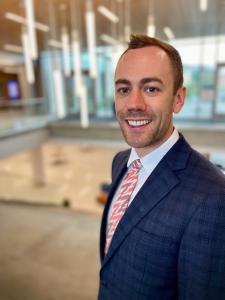Early Findings of Consumer Interest in Bi-directional & Smart EV Charging

Civil and Environmental Engineering
Institute of Transportation Studies
UC Irvine
Over 10% of US new vehicle sales are electric (25% in California). As the number of EVs grows and the power system moves to intermittent renewable generation, there is a natural synergy of encouraging flexible charging schedules to absorb renewables and avoid creating a new demand peak. Further, a growing share of EVs now offer bi-directional charging technology that can power small appliances up to one's home or sell power back to the grid. Despite numerous research studies on the financial and technical requirements of smart EV charging, only a few have directly investigated consumer interest in these charging features. This presentation presents early findings from a study exploring Americans' values of a zero-carbon energy-transportation future, willingness to accept smart charging (and at what cost), willingness to pay and expected use of bi-directional features.
Dr. Dean is an Assistant Professor of Civil and Environmental Engineering at the Institute of Transportation Studies, UC Irvine. His research focuses on sustainable transportation systems, planning and operations of electric and fully-automated vehicle fleets, integrated transportation and energy system modeling, and the link between physical activity and transportation-land use planning. His research identifies the suite of technologies and policies that can address complex urban problems, like climate change, rising energy and mobility demands with constrained infrastructure, and physical inactivity, to create sustainable and healthy communities.
He received his Ph.D. and MS in Civil Engineering from the University of Texas at Austin and his BS in Civil Engineering with a minor in Urban and Environmental Planning from the University of Virginia. Matt is a member of the ASCE T&DI Mobility on Demand and as a Service (MODaaS) and the Sustainable Transportation committees. During his graduate studies, he was an NSF Graduate Research Fellow.